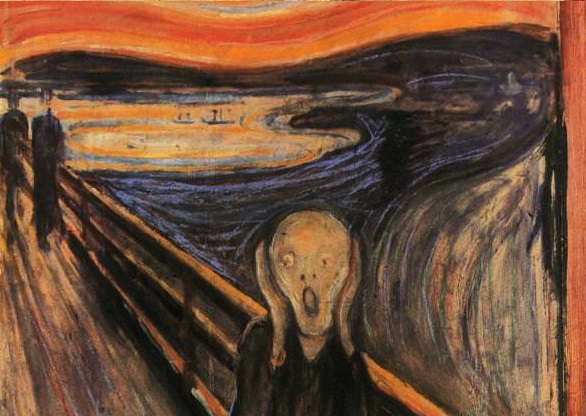 Art has been a central part of almost all cultures across the world. It expresses Ideas which we could never express to others in any other way. It inspires and empowers us to be bold and stand for what we believe in, in a way nothing else can do. However, what makes something art is defined by both the creator and the viewer of that art, meaning that as long as a piece of art still inspires an idea in the eye of someone it is still, at the bare minimum, art to someone. As long as there is someone who sees it as more than paint on a canvas it is still art. When the artist dies his work does not cease to be art because the ideas he left in his art still linger in the minds of those who experience his work.
Art has been a central part of almost all cultures across the world. It expresses Ideas which we could never express to others in any other way. It inspires and empowers us to be bold and stand for what we believe in, in a way nothing else can do. However, what makes something art is defined by both the creator and the viewer of that art, meaning that as long as a piece of art still inspires an idea in the eye of someone it is still, at the bare minimum, art to someone. As long as there is someone who sees it as more than paint on a canvas it is still art. When the artist dies his work does not cease to be art because the ideas he left in his art still linger in the minds of those who experience his work.
This is all fine and dandy until we consider the Noumenal world and art become’s less of a tangible thing and more of an idea. The Noumenal world, as defined by Kant, is the world outside of any experience of it. The Noumenal world is, by nature, unknowable. We can never know what the Noumenal world is like or, like Berkely thinks, if it even exists, however, I’m going to assume it exists since my house doesn’t stop existing every time I stop experiencing it. I earlier said that as long as someone is experiencing something as art it’s art, but what if there’s no one to experience it? Does it lose some quality of art that it had while it was in the Phenomenal world, the world as we experience it? Art is strictly a personal thing, as in it pertains to persons, art is not physical in what makes it art. The nature of art is that so that it affects our minds and not simply our eyes. If no mind is there to be affected by the art then it has failed its job and, thus, returns to simply being paint on a canvas, however, God experiences all things so does that mean that he sees it as art and it is, thus, still art? Well…. This is sort of a paradox in it of its self because if God is experiencing it then it ceases to be the Noumenal world and becomes the Phenomenal world because it’s being experienced, but God can’t stop experiencing it because of his nature. This is not a limit of his power because he can’t experience the Noumenal world, but merely common sense. If it was experienced, even by God, it would cease to be the Noumenal world and become the Phenomenal world. So, in the Noumenal world, we see that art cannot exist in the sense of the personal expression of an idea from one person to another.
If art is simply an idea and not something tangible then what does that mean for works that have never been experienced, perhaps because the artist held it too personal to share, and now the artist is dead? Is that not art or does it hold some artistic value as the record of the artist’s ideas and feelings, though they haven’t been experienced? For close personal works like these, I’d say it’s label as art is solely defined by the artist as it was not intended to inspire an idea in the eyes of anyone, but the artist. The art remains art because it was not meant to be experienced, but rather to be a private expression of the artist’s feelings and not anything else so it remains art after the artist’s death even though it is no longer being experienced.
It is important to make a distinction between inwardly centered art and outwardly centered art because the result in the Noumenal world is radically different between the two. Outwardly centered art crumbles when there is no one to experience it whereas inwardly centered art stands strong as an artistic record of the artist’s thoughts and feelings even when there is no one to experience it.
This question is, at its roots, the question of ‘If a tree falls in the forest and there’s no one around to hear it does it still make a sound?’ The answer to this question is, quite simply, no. The tree causes the air molecules to vibrate, but without an ear and a mind to perceive it as sound it remains simply air molecule vibrating. This is unless, like inwardly centered art, the tree never wanted to be heard.







